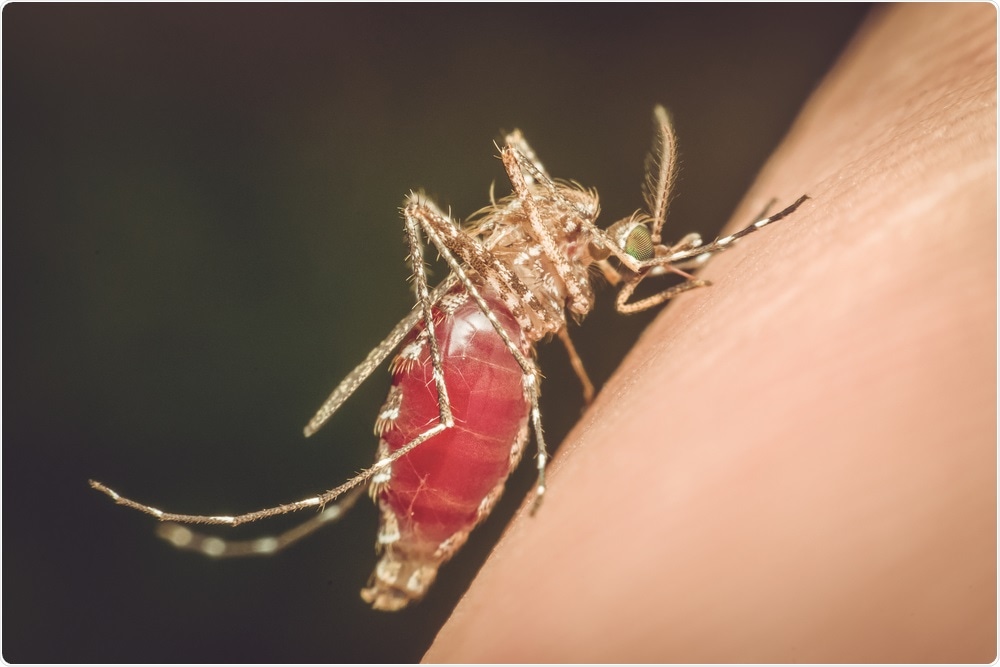"If we, humankind, were to take on this challenge and eradicate malaria by 2050, it would be an achievement of historic proportions. There would be nothing quite like it," said Richard Feachem, Co-Author of the report.
To achieve the target, governments, scientists and public health experts would need to inject an extra two-billion dollars of funding each year and experts have called the possibility of eradication a “goal of epic proportions.”

PongMoj | Shutterstock
Malaria is a disease caused by the Plasmodium parasite, which is transmitted when a female mosquito bites people for a blood meal. The potentially fatal infection causes severe fever, chills and shaking. It eventually affects the entire body, including the brain. The parasite infects liver
cells and red blood cells and another complication that can arise is anemia.
Each year, more than 200 million people are affected by the disease and most of the people who die are young children.
According to the CDC, eradicating the disease could save 219 million people from becoming ill each year and 435,000 people from dying.
Unprecedented progress has been made to reduce the spread of the disease
Huge progress has already been made in combatting malaria. The flu-like symptoms of the disease can be treated and prevented with drugs and, globally, the incidence of malaria has declined by 36% since 2000.
The number of countries worldwide that are affected has fallen from 106 to 86 and the death rate has fallen by 60%. This has mainly been due to the widespread availability of preventive aids such as bed nets treated with insecticide and drugs that treat the disease.
The disease has been almost completely eradicated in more than half of countries worldwide and, according to the Centers for Disease and Control Prevention (CDC), less than 2,000 cases are reported in the U.S each year.
However, the disease is still a devastating problem in many countries across Africa, Asia and Latin America, all of which have seen a rise in incidence over recent years, says the report.
Despite unprecedented progress, malaria continues to strip communities around the world of promise and economic potential. This is particularly true in Africa, where just five countries account for nearly half of the global burden.”
Winnie Mpanju-Shumbusho, Co-Author
Wiping out malaria would be a monumental achievement and three years ago, the World Health Organization (WHO) commissioned the current report to see how likely it is that this could be achieved and how much it would cost.
Eradicating malaria by 2050
The report, which has recently been published in The Lancet, concludes that malaria can and should be eradicated by 2050. However, Feachem says this would require “bold action” and that the global health community would need to come together across four key areas: software, hardware, finance and leadership.
According to Feachem, better management and use of data in malaria control programs would be needed, along with more effort from the private sector, new technologies and tools for slowing transmission and more vaccines, insecticides and diagnostic tests.
An extra $2 billion in funding would be needed, bringing the total yearly budget to $6.3 billion and more leadership would be required nationally, regionally and globally.
Feachem calls the goal “ambitious” and points out that even under the most positive of circumstances, progress could be hindered by anything from natural disasters and climate change to mass migration and civil wars.
He says wealthy nations such as the U.S would need to contribute funding: “It directs us away from national self-interest, and directs us toward the common good of humankind,” says Feachem.
One technology that has been described as “game changing” is gene-drive technology, which forces a gene to spread through the mosquito population to make the insects infertile so they can no longer breed, for example, or to make them resistant to Plasmodium.
Chair of the African Leaders Malaria Alliance, King Mswati III of Eswatini, says the struggle to keep up with the malaria mosquito and the parasite has been constant, with both creatures continually evolving to evade the effect of malaria interventions such as drugs and insecticides: "We must make sure that innovation is prioritized."
The report says that acquiring the additional $2 billion will be challenging, but that the social and economic benefits of wiping out the disease would “greatly exceed the costs.”
The Lancet Commission on Malaria eradication within a generation
Is the projection realistic?
Director general of the WHO, Dr. Tedros Adhanom Ghebreyesus, says it will not be possible to achieve eradication within a generation unless current tools and approaches are changed. Fred Binka from the University of Health and Allied Sciences in Ghana has referred to eradication as a goal of epic proportions:
It will require ambition, commitment and partnership like never before, but we know that its return is worth the investment, not only by saving lives in perpetuity, but also improving human welfare, strengthening economies and contributing to a healthier, safer and more equitable world.”
Fred Binka, MB ChB, MPH, PhD
Further Reading
Journal reference:
Feachem, R. G. A., et al. (2019). Malaria eradication within a generation: ambitious, achievable, and necessary. The Lancet. https://doi.org/10.1016/S0140-6736(19)31139-0.